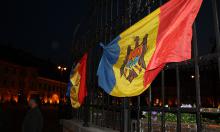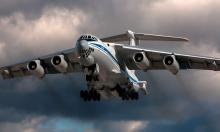Europe needs Russian scrap rather than steel
 French Minister of Finance Nicolas Sarkozy recently offered to suspend EU import quotas for steel from Russia, Ukraine and Kazakhstan "to help steel consumers suffering from high prices ".
French Minister of Finance Nicolas Sarkozy recently offered to suspend EU import quotas for steel from Russia, Ukraine and Kazakhstan "to help steel consumers suffering from high prices ".
But Russian steel makers do not expect to reap any benefit from the Minister’s offer.

"Perhaps the time has come to do away with these quotas ", Sarkozy said to the National Assembly of France. According to him, a 30 per cent rise in steel prices poses a threat to the "crucial" interests of French companies. In order to increase supply and to reduce prices Sarkozy offered "to turn to the neighbours in the East removing restrictions on steel imports from Russia, Ukraine and Kazakhstan".
The minister also proposed to suspend some anti-dumping procedures against foreign, including Russian, steel producers. Under a bilateral agreement between Russia and the EU, a 1.38 million tonnes quota on Russian steel exports to Europe was established for the current year. Following EU enlargement from 1 May 2004 it rose 438, 000 tonnes, though Russia proposed an increase of 480,000 to 500,000 tonnes.
However, European steel makers look dissatisfied with Sarkozy’s initiative. "The minister is not quite familiar with the situation”, said Gordon Moffat, a director of Eurofer, a European steelmakers' association. “This year Russian companies are filling just 20 per cent of their quotas, because all their exports go to Asia. Two or even three times higher quotas will hardly increase steel supply in Europe or ease prices. However , quotas are needed as a safeguard against a surge in Russian steel imports in the future".
The European Commission is not too eager to remove the quota. "Rising prices are visibly turning into a problem, and we are receiving complaints from steel consumers, for example, in France, the Netherlands, and Germany", says its spokeswoman Arancha Gonzalez.
The European Commission is looking at three possible solutions. They are raising quotas for exporter countries, including Russia, elimination of some anti-dumping procedures and increase in imports of ferrous scrap and other metal raw materials into the EU". We are inclined to choose the third solution,” says Gonzalez. “In the framework of WTO negotiations, we discuss Russian export tariffs on ferrous scrap". Thus, the EU prefers to have cheap raw materials from Russia rather than its finished steel products.
Last year, Russia raised scrap export tariffs to 12 per cent to better meet the needs of its iron and steel industry in raw materials and semi-finished products. But that move almost immediately brought WTO and EU accusations that Russia was practicing non-market protectionism for its steel mills. It is worth noting that for some years now, Russian imports have invariably been over 25 per cent of European total scrap imports.
In 2002, Russia reduced its export tariffs on ferrous metals by a mere 5 per cent, to ease pressure on the Russian market, which can absorb, for financial or technological reasons, a maximum of 40 per cent of domestic steel output.
Alexei Baliyev
Translated by ZM
Subscribe to Pravda.Ru Telegram channel, Facebook, RSS!




